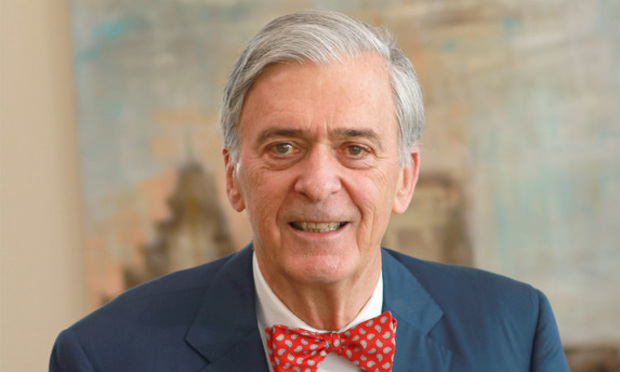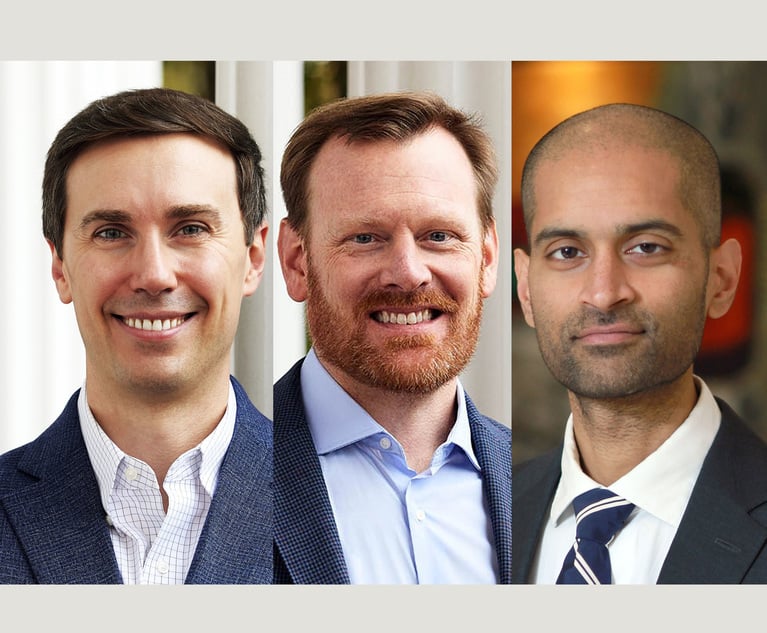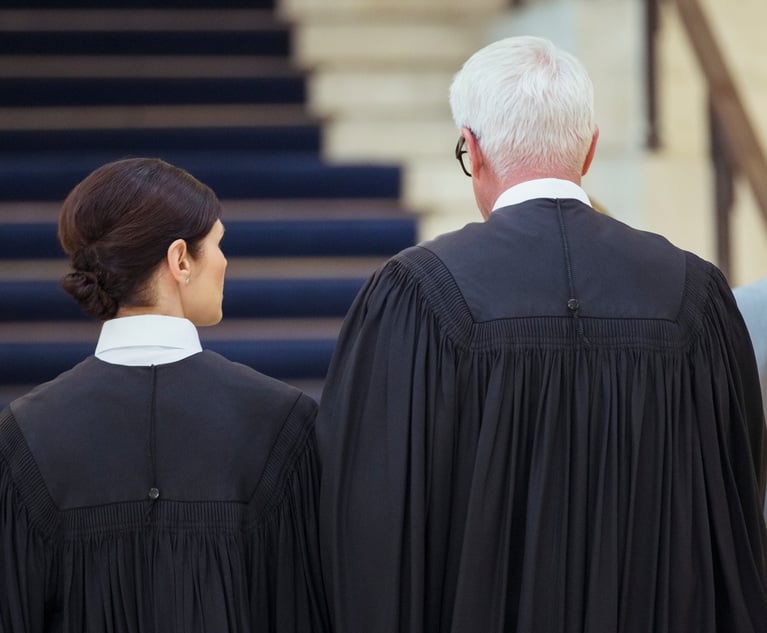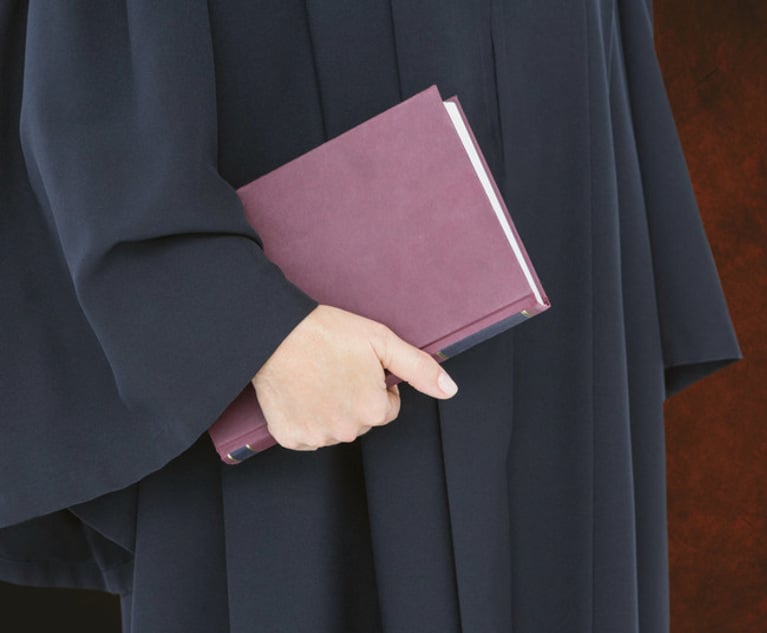Lifetime Achievement: Richard Hines
"There can be no surprises" when representing Corporate America, says Hines. "Especially in today's environment, where an adverse verdict can put a company out of business, the client needs to know everything about the case."
June 19, 2019 at 02:00 PM
5 minute read
 Richard Hines, Nelson, Mullins, Riley & Scarborough, Atlanta (Photo: John Disney/ALM)
Richard Hines, Nelson, Mullins, Riley & Scarborough, Atlanta (Photo: John Disney/ALM)
Michael Hollingsworth, the local managing partner of Nelson, Mullins, Riley & Scarborough, said his partner Richard Hines has spent nearly 50 years in law defending “the seemingly indefensible.”
To illustrate, Hollingsworth cited Hines' representation of basketball legend Dennis Rodman during the 1990s. Rodman's then-girlfriend alleged Rodman had transmitted a disease to her. After a one-week trial in federal court, during which Rodman said he was not aware he had a transmittable disease, he received a defense verdict.
In another high-profile case, Hines represented the wife of the principal developer of the computer modem in one of the largest divorce cases of the 1980s in terms of estate. The case settled at 3 a.m., just hours before the case was to go before a jury.
More often, Hines litigates in the areas of complex litigation involving product liability, mass torts and toxic torts, franchisor and business-related cases. In a case deemed by the National Law Journal as one of the top five 2002 defense verdicts in the country, Hines successfully defended an international tire manufacturer in a trial where Harvard and Massachusetts Institute of Technology faculty dotted the jury box. Despite the tragic circumstances that left a man a paraplegic after a rollover accident, Hines secured a defense verdict negating allegations of a defective tire.
In a case argued before the U.S. Supreme Court, Hines secured a 9-0 ruling that a national rail carrier owed only $500 per container after the derailment of an overseas shipment valued at $2.5 million.
What drew you to the type of litigation you practice, described by your managing partner as “defending the seemingly indefensible”?
The challenge and the competition. Not that all litigation does not present a challenge, but the harder the facts and the more foreboding the jurisdiction and opposing counsel, the more I like the joust. We all learned in law school how court proceedings emerged from rudimentary fairness to oath swearers to where we are today—with numerous stops in between. But in a way, it did start with the joust, and I am confident that most good trial lawyers would rather be in the arena/courtroom than anywhere else.
How do you manage client expectations in these kinds of cases?
There can be no surprises. I more often than not am representing corporate America in the courtroom. Especially in today's environment, where an adverse verdict can put a company out of business, the client needs to know everything about the case—and not just the facts. It needs to know all the unvarnished details involving the jurisdiction, the law, the witnesses, the judge, everything. It may be your reputation, but it is their money. And their expectations should be set early. The next time you call a client after the first day of trial and say, “The jury and the judge are terrible; we've got to settle.” will be the last time you will be representing that client.
You once settled a major case at 3 a.m. In the middle of the night or at any hour, what are the key factors in hatching a settlement?
You need to have an honest appreciation of what the other side's expectations are, and your client must have an honest expectation of what can be achieved. The litigated dispute is going to be resolved either in the courtroom or in the boardroom, and both sides must appreciate that it is far better to resolve your own fate than have 12 strangers do it.
What professional accomplishment are you particularly proud of, and what challenge did you overcome to achieve that result?
Perhaps because it is unfolding as we speak, but we have just concluded an international child abduction case—pro bono, I might add—for the U.S. State Department involving a mother's wrongful taking of her two daughters from Milan, Italy, to Athens, Georgia. After nearly 50 years of practice, I had never done anything like this. Not only did it involve aspects of federal law and the Hague Convention, but Italian law was involved, as well.
Our Italian father spoke no English, and we used a University of Milan law professor to testify remotely at an 11-hour hearing as an expert on Italian law and practice. Quite the challenge, but the end result was most gratifying. The father and the children's grandmother will be flying to Atlanta to return the children to Italy in early June, where further proceedings will take place.
This had nothing to do with product liability litigation, toxic torts, MDLs and the like. It involved a distressed dad, his children and international law at work!
What advice would you give to a client or colleague in a crisis?
Never be reactionary in your thinking. Think the issues through in the chill of the early dawn. Research the legal issues to a fare-thee-well. Work collaboratively with your client and your colleagues, and, if you do not have the skill set, never fake it. Bring in someone who does. The crisis will pass; bad decisions will not.
This content has been archived. It is available through our partners, LexisNexis® and Bloomberg Law.
To view this content, please continue to their sites.
Not a Lexis Subscriber?
Subscribe Now
Not a Bloomberg Law Subscriber?
Subscribe Now
NOT FOR REPRINT
© 2025 ALM Global, LLC, All Rights Reserved. Request academic re-use from www.copyright.com. All other uses, submit a request to [email protected]. For more information visit Asset & Logo Licensing.
You Might Like
View All
Spalding Jurors Return $12M Verdict Against State Farm Insurance Client
10 minute read

Trending Stories
- 1'It's Not Going to Be Pretty': PayPal, Capital One Face Novel Class Actions Over 'Poaching' Commissions Owed Influencers
- 211th Circuit Rejects Trump's Emergency Request as DOJ Prepares to Release Special Counsel's Final Report
- 3Supreme Court Takes Up Challenge to ACA Task Force
- 4'Tragedy of Unspeakable Proportions:' Could Edison, DWP, Face Lawsuits Over LA Wildfires?
- 5Meta Pulls Plug on DEI Programs
Who Got The Work
Michael G. Bongiorno, Andrew Scott Dulberg and Elizabeth E. Driscoll from Wilmer Cutler Pickering Hale and Dorr have stepped in to represent Symbotic Inc., an A.I.-enabled technology platform that focuses on increasing supply chain efficiency, and other defendants in a pending shareholder derivative lawsuit. The case, filed Oct. 2 in Massachusetts District Court by the Brown Law Firm on behalf of Stephen Austen, accuses certain officers and directors of misleading investors in regard to Symbotic's potential for margin growth by failing to disclose that the company was not equipped to timely deploy its systems or manage expenses through project delays. The case, assigned to U.S. District Judge Nathaniel M. Gorton, is 1:24-cv-12522, Austen v. Cohen et al.
Who Got The Work
Edmund Polubinski and Marie Killmond of Davis Polk & Wardwell have entered appearances for data platform software development company MongoDB and other defendants in a pending shareholder derivative lawsuit. The action, filed Oct. 7 in New York Southern District Court by the Brown Law Firm, accuses the company's directors and/or officers of falsely expressing confidence in the company’s restructuring of its sales incentive plan and downplaying the severity of decreases in its upfront commitments. The case is 1:24-cv-07594, Roy v. Ittycheria et al.
Who Got The Work
Amy O. Bruchs and Kurt F. Ellison of Michael Best & Friedrich have entered appearances for Epic Systems Corp. in a pending employment discrimination lawsuit. The suit was filed Sept. 7 in Wisconsin Western District Court by Levine Eisberner LLC and Siri & Glimstad on behalf of a project manager who claims that he was wrongfully terminated after applying for a religious exemption to the defendant's COVID-19 vaccine mandate. The case, assigned to U.S. Magistrate Judge Anita Marie Boor, is 3:24-cv-00630, Secker, Nathan v. Epic Systems Corporation.
Who Got The Work
David X. Sullivan, Thomas J. Finn and Gregory A. Hall from McCarter & English have entered appearances for Sunrun Installation Services in a pending civil rights lawsuit. The complaint was filed Sept. 4 in Connecticut District Court by attorney Robert M. Berke on behalf of former employee George Edward Steins, who was arrested and charged with employing an unregistered home improvement salesperson. The complaint alleges that had Sunrun informed the Connecticut Department of Consumer Protection that the plaintiff's employment had ended in 2017 and that he no longer held Sunrun's home improvement contractor license, he would not have been hit with charges, which were dismissed in May 2024. The case, assigned to U.S. District Judge Jeffrey A. Meyer, is 3:24-cv-01423, Steins v. Sunrun, Inc. et al.
Who Got The Work
Greenberg Traurig shareholder Joshua L. Raskin has entered an appearance for boohoo.com UK Ltd. in a pending patent infringement lawsuit. The suit, filed Sept. 3 in Texas Eastern District Court by Rozier Hardt McDonough on behalf of Alto Dynamics, asserts five patents related to an online shopping platform. The case, assigned to U.S. District Judge Rodney Gilstrap, is 2:24-cv-00719, Alto Dynamics, LLC v. boohoo.com UK Limited.
Featured Firms
Law Offices of Gary Martin Hays & Associates, P.C.
(470) 294-1674
Law Offices of Mark E. Salomone
(857) 444-6468
Smith & Hassler
(713) 739-1250







